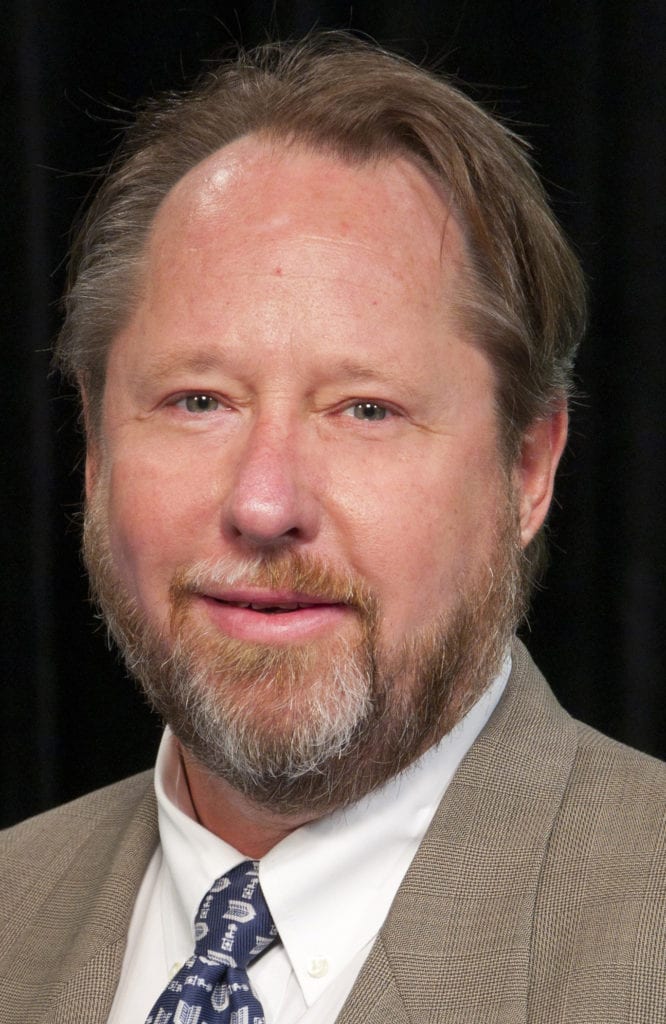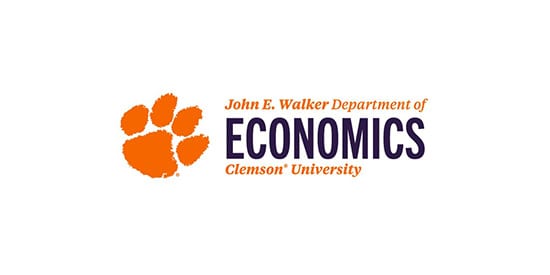Entrepreneurism is about innovation, so it seems only natural for the topic to be taught in an outside-the-box academic fashion.
That’s exactly what Brad Hobbs did during the spring semester with his John E. Walker Department of Economics students in the Wilbur O. and Ann Powers College of Business.

The clinical professor of economics chooses to bypass a check-the-box approach to learning on a variety of subjects germane to economics through colloquia, seminar-like learning experiences that engage students in an interactive academic exercise.
Students participating in Hobbs’ April colloquium on entrepreneurism were recruited from ECON 3500 – The Moral and Ethical Aspects of a Market Economy and ECON 2050 – Why Business? The day-long event was administered by the Institute for Humane Studies and facilitated by Marcus Witcher, assistant professor of history at Huntingdon College, Montgomery, Ala.
Hobbs said the entrepreneurial colloquium, like the other 60-plus he’s conducted in his career, is an effort at refocusing learning toward the strategic mission of colleges and universities, and that is academic education.
“Colleges and universities have expanded non-academic programs and ‘student services’ significantly over the last four decades,” he said. “The colloquia bring serious academic inquiry of undergraduates back to center stage. Goals include encouraging students to engage in life-long learning, to expose students to academically rigorous work and to come to know and appreciate the rewards of intellectual inquiry beyond classes and classrooms.”
In preparation for his spring semester colloquium, students were required to read articles written by economists that are pertinent to entrepreneurship. Some of them on theory, or idea articles, and others were the “nuts and bolts” of entrepreneurism. Students then shared their views of the authors’ perspectives during discussion sessions.
Hobbs said the readings and subsequent discussions often turn into “great academic bull sessions” that challenge students in ways traditional classroom learning does not. “My Clemson students are impressive in their engagement and commitment to projects such as these,” he said.
One of those students is economics major Aubrey Steele, who said the colloquium deepened his understanding of entrepreneurism and how important it is to a sustainable economy.
“My primary takeaway is that entrepreneurship is a much more intricate idea than I had ever taken the time to consider. It’s more than simply invention or innovation, it’s the apparatus by which economies facilitate growth,” the Gilbert, S.C. native said. “In no small way, we owe the modern era to those skilled few who can actualize opportunity and mold it into economic development.”
Ultimately, Hobbs said, he wants students to walk away knowing that ideas matter and to take seriously themselves as young scholars who can read, digest and ponder big ideas.
“I want students to internalize the academic process and to reject confirmation bias which is the tendency to ace to confirm what you already know darn well to be true, even if it’s not. In other words, before you simply confirm what you already believe, about something, position, stance or viewpoint; read about it, inform yourself, and know something about alternative viewpoints and arguments. Also, use this as an opportunity to expand not contain your horizons” Hobbs added. “These are students interested in academic ideas and are engaged in ways that some others choose not to be.”
Elizabeth Burbage, an economics senior, said the colloquium readings and robust discussions exposed her to different opinion-based viewpoints on entrepreneurship and capitalism as a whole.
“After the conversations we had, it became clear to me how entrepreneurial freedom can be the driving force in promoting sustainability in a country’s economic growth,” she said. “The readings and conversations gave me insights into how entrepreneurship can not only benefit an economy, but its natural resources and individual privately-run businesses.”
# # #
Get in touch and we will connect you with the author or another expert.
Or email us at news@clemson.edu

